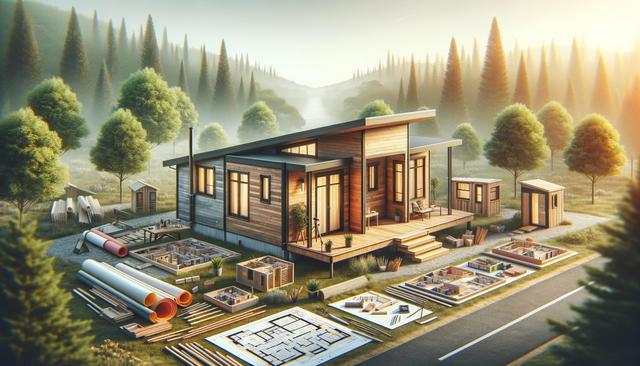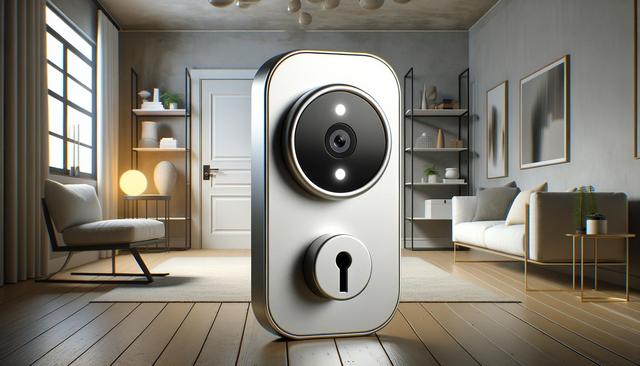What Are Unsold Modular Homes?
Unsold modular homes are prefabricated homes that were built for sale but have not yet been purchased. These homes are typically manufactured in a controlled factory environment and transported to a home site for final assembly. Often, they remain on display at dealer lots or storage facilities, awaiting potential buyers. The reasons for these homes remaining unsold vary, including changes in buyer preferences, design choices that didn’t meet market demand, or simply overproduction by manufacturers.
These homes can present a unique opportunity for buyers looking for a quicker and often more affordable path to homeownership. Since they are already built, the waiting time for construction is significantly reduced. Moreover, dealers may offer discounts or incentives to move unsold inventory, making them an attractive option for budget-conscious buyers.
Potential Advantages of Buying Unsold Modular Homes
There are several benefits to purchasing an unsold modular home, especially for those willing to compromise slightly on customization. Some of the primary advantages include:
- Cost Savings: Sellers often reduce prices to clear inventory, which can lead to substantial savings.
- Quicker Move-In Time: Since the home is already built, buyers can move in much sooner than if they ordered a new custom-built modular home.
- Reduced Decision Fatigue: Pre-selected finishes and layouts can simplify the buying process for those overwhelmed by too many choices.
However, it’s important to remember that while the price may be lower, buyers should still conduct thorough inspections and compare multiple listings to ensure they’re getting a good deal. Working with a real estate agent or modular home specialist can also provide additional insights and help navigate the purchasing process.
Things to Consider Before Purchasing
Before committing to an unsold modular home, it’s crucial to evaluate several factors to ensure the home meets your needs and aligns with local zoning regulations. Here are a few things to consider:
- Location Compatibility: Check if the home’s specs fit the zoning laws and building codes of the intended installation site.
- Customization Limitations: Unlike custom orders, unsold modular homes come with pre-selected finishes and floorplans, limiting personalization.
- Transportation and Setup Costs: Factor in the additional expenses involved in transporting the home from its current location to your property and having it set up.
- Warranty and Condition: Confirm whether the manufacturer’s warranty is still valid and inspect the home for any wear or damage incurred while unsold.
Thorough due diligence can prevent unexpected costs and ensure a smoother transition into your new home. Asking detailed questions and requesting documentation can help clarify the full scope of the purchase.
How to Find Unsold Modular Homes
Locating unsold modular homes can be straightforward if you know where to look. Start by contacting modular home dealers in your area, as they often have inventory they’re looking to move. Additionally, checking with manufacturers directly can provide insights into available stock. Online classified platforms and housing forums also frequently list unsold or recently discounted modular homes.
Here are a few tips to help your search:
- Use search terms like “inventory clearance modular homes” or “modular home closeouts.”
- Attend local modular home expos or open house events hosted by dealers.
- Join forums or online communities focused on modular and prefab housing for insider leads.
Being proactive and patient during your search can increase your chances of finding a home that meets your criteria and budget. Keep in mind that inventory changes frequently, so staying in touch with dealers can help you act quickly when the right opportunity arises.
Negotiating and Closing the Deal
Once you’ve found an unsold modular home that suits your needs, the next step is negotiation and closing. Unlike traditional home purchases, buying a modular home involves negotiating with the dealer or manufacturer rather than a homeowner. This can be advantageous, as businesses are often more open to flexible pricing or incentives to clear out inventory.
To ensure a smooth transaction:
- Request a full breakdown of costs: Understand the base price, transportation fees, site preparation, and installation costs.
- Clarify warranty terms: Ensure any remaining manufacturer or dealer warranties will transfer to you.
- Secure financing: Modular homes may require specialized loans, so work with lenders experienced in this area.
- Inspect thoroughly: Even if the home is new, a professional inspection can help identify any issues that may have developed while the home was in storage.
Having a detailed agreement in writing and involving professionals who understand modular housing can help avoid misunderstandings and ensure a fair deal for both parties.


